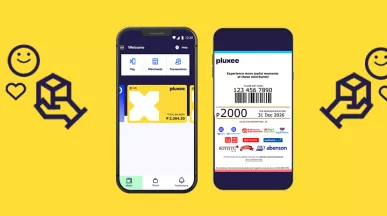Here’s why your younger employees are embracing micro-retirement

For many young professionals, the thought of working nonstop and only getting a chance to enjoy life upon retirement feels draining. With burnout becoming more common, more and more Gen Z and millennials are starting to question their career path. Instead of sticking to the traditional corporate ladder, some are choosing to pause and take mini breaks more often. This growing trend is called micro-retirement.

What sparked the micro-retirement trend
The micro-retirement trend is gaining traction as more employees take extended, self-funded time off to travel, pursue personal projects, or simply rest. Unlike a typical vacation leave, these breaks can last for months or even years. In some cases, when employees feel fully burned out or frustrated, they leave proactively even without waiting for formal approval from their employer.
The idea was first made popular by entrepreneur Tim Ferriss in his 2007 book The 4-Hour Workweek, where he argued that people shouldn't wait until old age to enjoy life to the fullest. Instead of deferring joy until retirement, he encouraged "mini retirements" throughout one’s career.
No, it’s not about employees walking away from their jobs or careers completely. In fact, a 2024 Deloitte study shows that many employees expect to stay in the workforce longer; however, they’re finding ways to build breathers along the way. For them, micro-retirement is a conscious choice to protect their well-being and redefine success on their own terms.
While micro-retirement offers a much-needed reset, it's a significant career decision with major potential trade-offs to consider. Individuals might face career interruptions, impacting promotions in fast-paced fields or causing financial instability. With rapid advancements in AI and technology, taking time off could also mean missing crucial upskilling or growth opportunities. It's essential for those considering it to align this decision with their personal and career goals.
Read more here: Why your employees are revenge quitting to make a point

Why micro-retirement matters for employees
-
Improved well-being
A reset period can reduce stress, improve mental health, and combat burnout. Many employees step away not because they dislike their jobs, but because the constant pressure leaves little room to no room to recharge. Temporary breaks help preserve long-term productivity and help prevent emotional exhaustion.
-
Time to upskill
This extended break also allows employees to reassess their goals, pursue certifications, or learn new skills. As digital transformation continues to reshape roles and industries, many use this pause to stay competitive—not fall behind.
-
Fresh perspective
Stepping away from day-to-day routines can help renew creativity, strengthen boundaries, and improve decision making. It can also give employees a clearer view of their priorities and how they want to grow further.

What micro-retirement can signal for your organization
-
The rise of flexible career paths
Younger employees are moving away from linear careers. They prioritize purpose, autonomy, and flexibility over climbing the traditional corporate ladder.
-
A red flag for burnout and disengagement
When valuable talent chooses to step away (even temporarily), it can highlight deeper issues like lack of engagement, unclear development opportunities, or poor work-life balance.
-
The urgency to build responsive work cultures
Organizations that resist change risk losing future leaders. Embracing flexible, long-term relationships where it’s safe for employees to take micro-retirements can boost morale and improve loyalty.
Read more here: Office survival guide | 5 types of colleagues you'll meet

Recognition: Your next go-to strategy
Instead of seeing micro-retirement as an issue, you can view it as an opportunity for your organization to adapt, support your workforce, and stay competitive.
While not all organizations can offer sabbaticals or flexible return programs, boosting work-life joy by making employees feel valued before burnout sets in is the key. When employees feel seen and appreciated, they’re more likely to stay engaged and motivated. This is where a strong Rewards & Recognition (R&R) program comes in.
Here at Pluxee Philippines, we offer a simple yet effective solution with our Rewards & Recognition platform. Whether it’s recognizing big achievements or celebrating daily wins, tools like this make building team morale easy.

Rethinking the future of work and well-being
Micro-retirement's growing popularity is a signal that today’s workforce is redefining what a fulfilling career is like.
For HR and leadership teams, the challenge is clear: How can you create a workplace your people can thrive in? If we want to keep our talent engaged, we don’t just need to offer flexibility. We need to show our people they matter now—and recognition is a good place to start.
Read more here: Take your pick | Work-life balance or work-life integration






